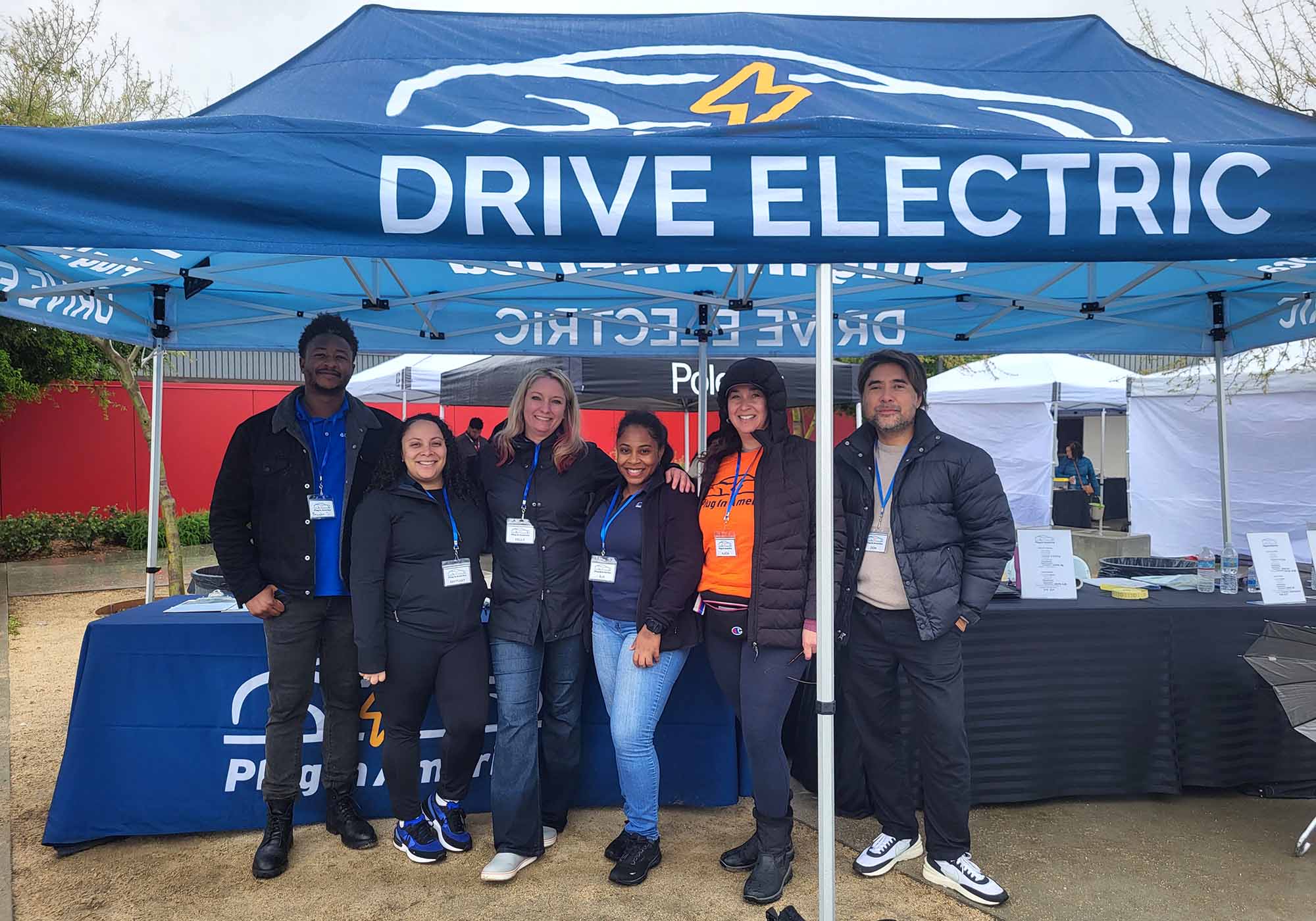1. EVs are Better for the Environment
Over the course of their lifetimes, EVs generate less than half of the GHG emissions of comparable gasoline-powered vehicles. This includes all of the resources used in manufacturing the vehicle, the battery, and powering the vehicle. In addition, electricity in the U.S. keeps getting cleaner, meaning that these benefits will continue to grow in future years. Also, batteries can be reused for other purposes, and the minerals in batteries can be recycled almost infinitely.
2. EVs Cost Less to Fuel
Powering your ride with electricity costs about 60% less than buying gasoline. Plus, if you are able to charge at home, it’s REALLY convenient! Like your smartphone, you plug it in when you arrive home and forget about it until you wake in the morning to a fully-charged battery. Depending on your electric utility, you may be able to save even more money by setting your car to charge at off-peak rates.
3. EVs Cost Less to Maintain
A recent study by Consumer Reports on repair and maintenance data from thousands of drivers shows that EV drivers pay about half of what drivers of fossil-fuel-powered vehicles pay for maintenance and repairs. This means no oil changes, no transmission fluids, and no radiators. Not only does this save you money, but it also saves you time spent waiting for your car to be serviced.
4. EVs have Better Warranties
The average gasoline vehicle has a powertrain warranty of 5 years/50,000 miles. Thanks to federal regulations, EV batteries are required to be 8 years/100,000 miles. California goes even further and requires battery warranties of 10 years/150,000 miles! Cars are important investments, it’s nice to know your EV is protected.
5. EVs Improve Public Health
Transportation emissions are the leading source of air pollution in the U.S. Tailpipe emissions are known to lead to health problems including asthma in adults and children, cardiovascular disease, lung cancer, and premature death. People of color are 64% more likely than white people to live in a community with unhealthy air. The good news is that EVs are starting to make a difference. A recent study looked at zip codes and found that as more EVs were registered in those zip codes, local air pollution levels and emergency room visits dropped.
6. EVs Create Good Paying Jobs in the U.S.
Recent federal investments in EV infrastructure and deployment have catalyzed U.S. manufacturing investment to the tune of $87 billion since late 2021. This goes hand in hand with the creation of 143,000 new U.S. jobs associated with battery and EV manufacturing. According to the analysis, states like Tennessee, Michigan, Ohio, Indiana, Kentucky, Kansas, and North and South Carolina are big winners in manufacturing investment.
7. EVs are Better for the Grid
Electric vehicles are essentially mobile power storage that can get us where we need to go. Since most EVs are only in use a small fraction of each day, they can often charge when energy on the grid is clean, cheap, and abundant. They can also store energy for use at a later time if they have vehicle-to-grid or vehicle-to-home capabilities. But even without these benefits, a recent study found that EVs are actually driving rates down for California’s largest utilities by contributing approximately $1.7 billion more in revenues than costs.
8. EVs Improve Energy Security
The transportation sector is responsible for about 70% of U.S. petroleum consumption. Since EVs don’t use gasoline, they reduce America’s dependence on foreign oil. Plugging into the U.S. grid actually diversifies U.S. transportation energy to renewables and other domestic sources. This protects markets from embargoes, shortages, and political conflicts. It also protects drivers from the price volatility at the pump.
9. EVs are Eligible for Federal, State, and Utility Incentives
The Inflation Reduction Act extended and expanded federal tax incentives for EVs. Many EV models are eligible for up to $7,500 in income tax credits. Other EV models not listed on the fueleconomy.gov website are eligible for incentives through reduced lease rates. In addition to new clean vehicle incentives, used EVs are eligible for a $4,000 tax credit through dealers that can be used as money down or reduced monthly payments. Businesses and tax-exempt entities are also eligible for EV tax credits up to $40,000 per vehicle. In addition to federal incentives, states and utilities offer incentives for EV purchases in the form of cash incentives, HOV lane access, and reduced electricity rates. Depending on where you live, you could get an incentive for installing a charger, too.
10. EVs are Fun to Drive
Whereas much of the power in gas vehicles is lost as heat energy, (ever open the hood of a hot car?) power in an EV goes directly to the wheels making them not only more efficient but also much faster off the line. Instant torque, Smoother acceleration, nearly silent operation, and a lower center of gravity (due to battery placement) make for a really nice ride.


